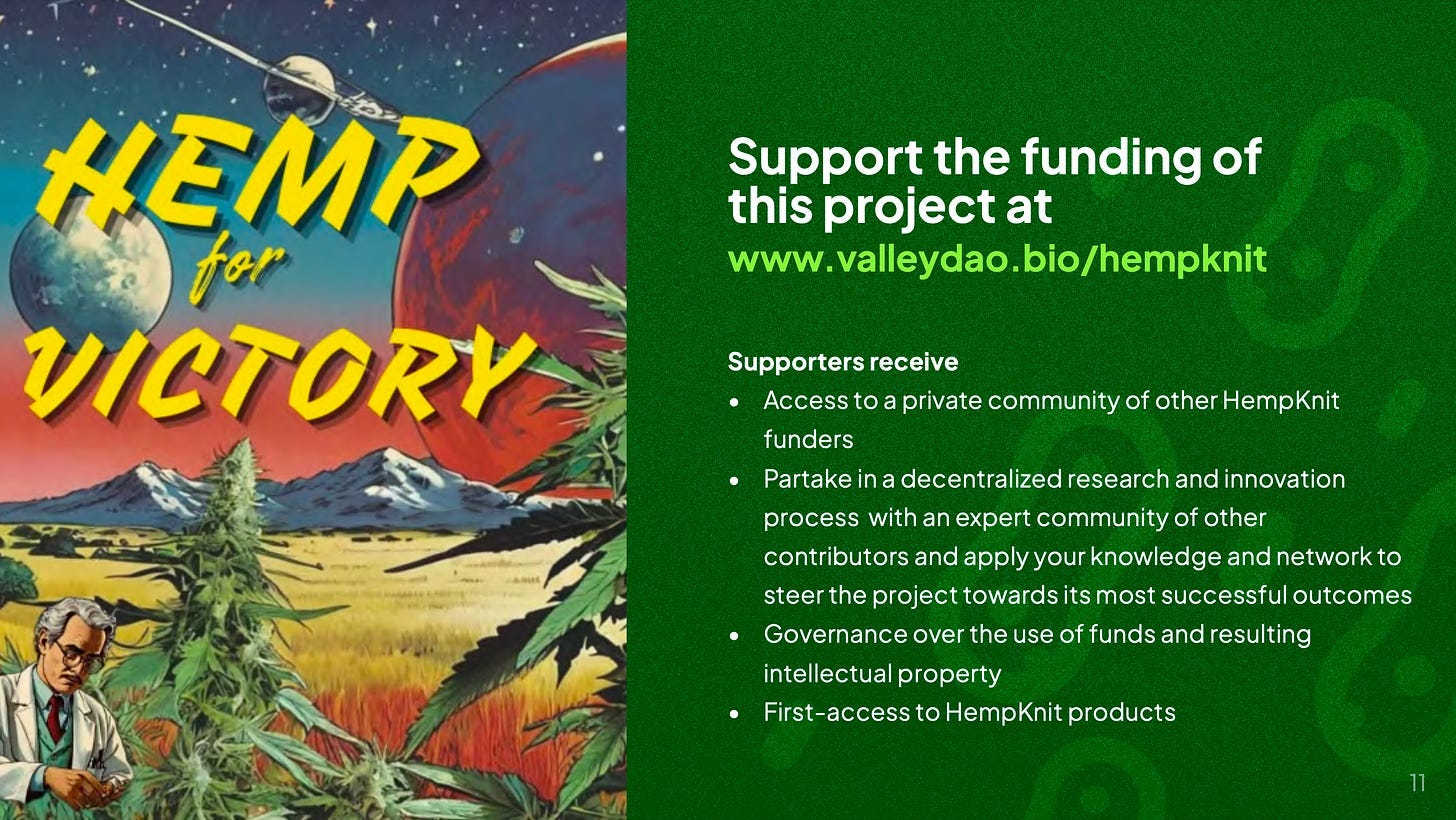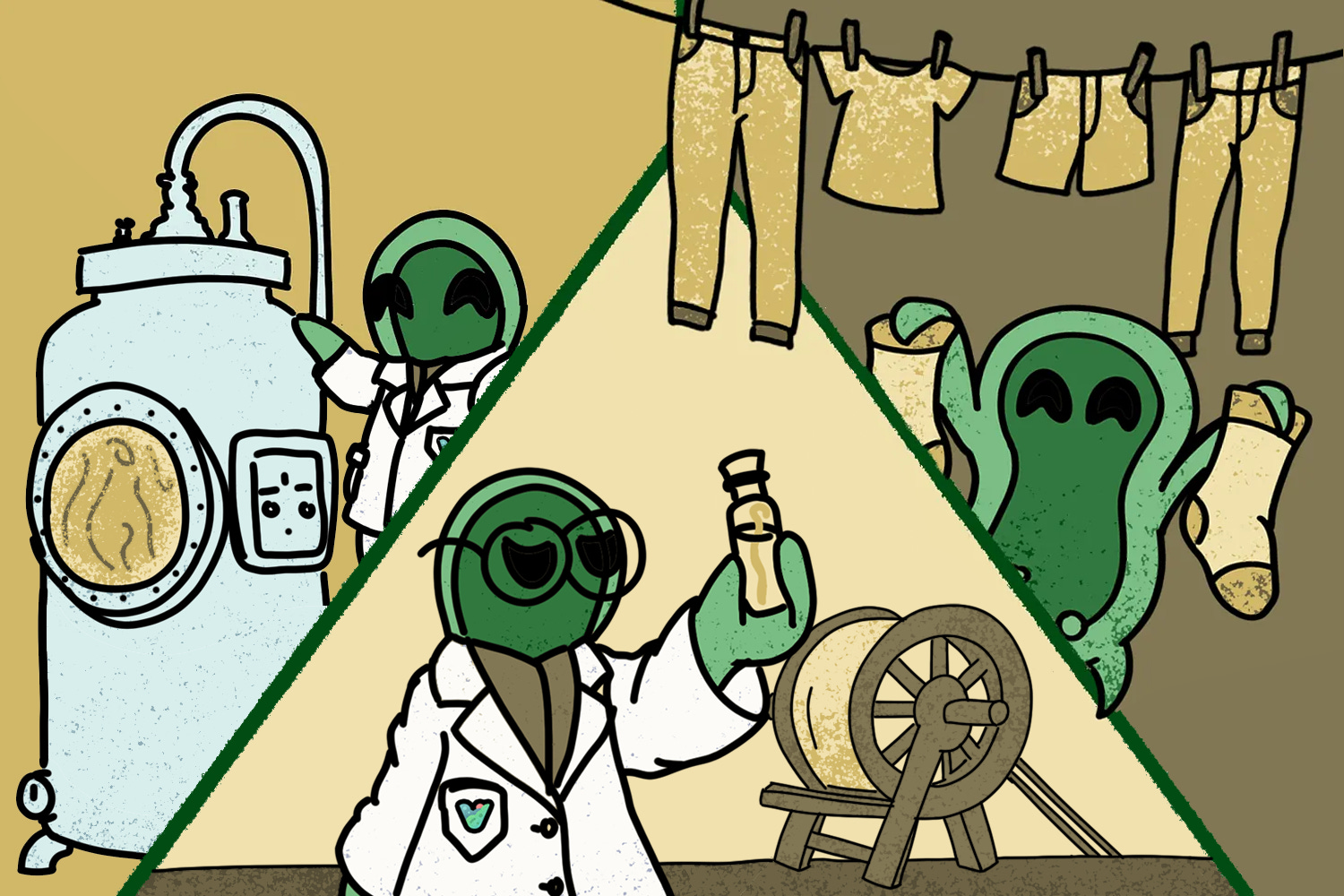For the first time ever, we're opening up the opportunity for anyone to co-fund this research project alongside us. Read on to find out more (or else click here).
We live in a time when consumers across the world are becoming increasingly interested in more sustainable clothing. Yet when it comes to clothing, hemp - despite being the most eco-friendly fabric available - struggles to compete against softer fibres like cotton or linen. Though very durable, it’s also rough; leaving it better suited to rope and canvas. Yet at the molecule level, these fibres are all made up primarily of lignin and cellulose: meaning that by targeting these molecules, we can alter the properties of each fabric. Linen can be made tougher - and hemp can be made softer.
This kind of alteration used to require harsh chemical treatments however, undermining the benefits gained from using more environmentally friendly fabrics. But now, thanks to recent advances in enzymatic treatment, we can do this at a fraction of the cost and in a way that is much more sustainable for the environment.
HempKnit is a climate biotechnology-based research project formed with this in mind. Led by the ValleyDAO community and in collaboration with the Austrian Institute of Industrial Biotechnology (ACIB), its goal is to design an eco-friendly hemp fabric superior to cotton.
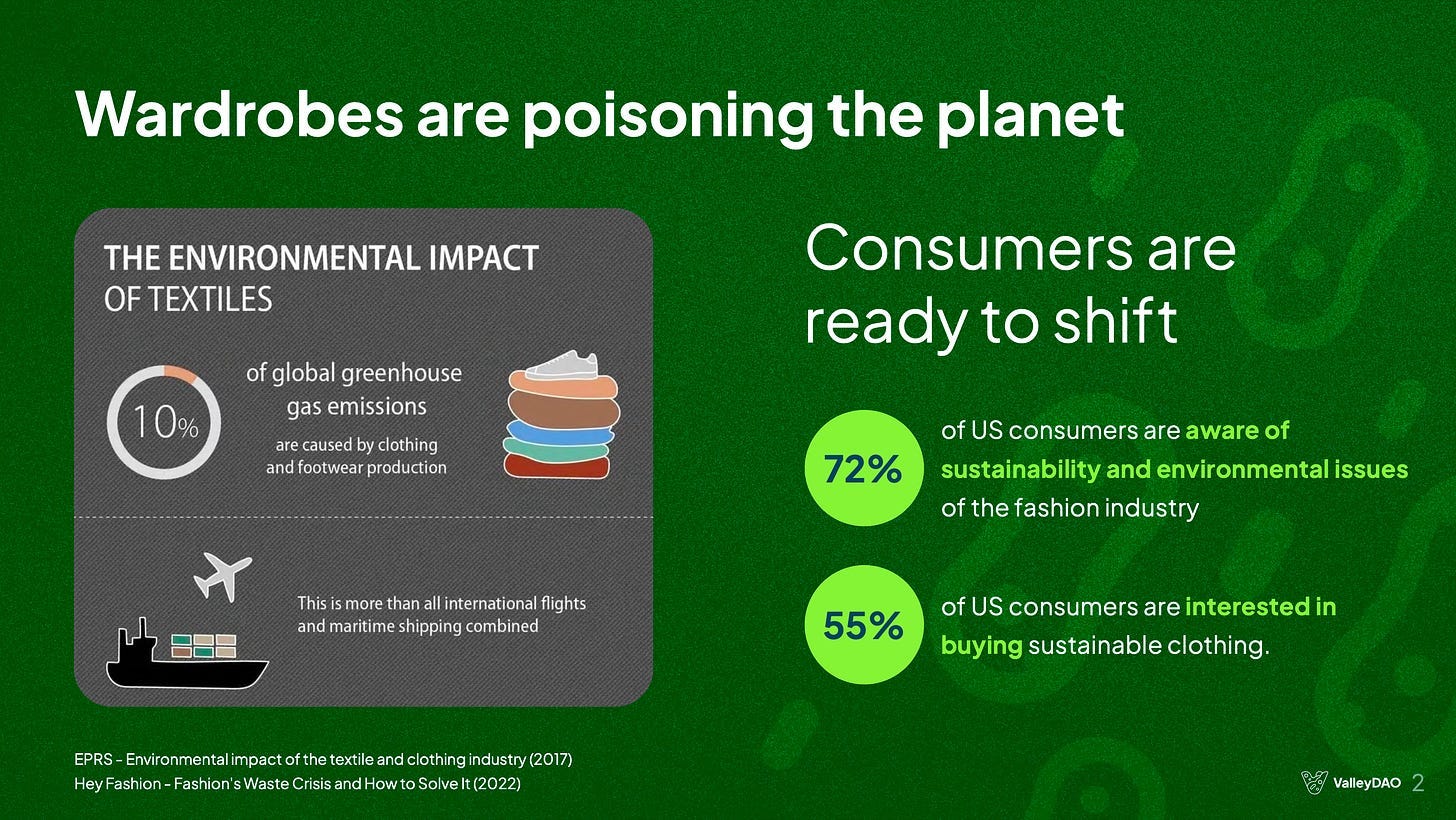
The reason we chose hemp for this project is that, as a fabric, hemp outperforms other natural fibres - both for productivity and environmental considerations.
Compared to cotton, hemp produces over 3x as much fibre per acre - despite requiring 1/3rd of the water - and reaches full maturity in 1/3rd of the time. Further, since it can grow in far more diverse climates, we can avoid farming in warmer, water-stressed regions; instead prioritising regions where water stress is much less of a concern in the first place.
Yet as the neglect from the fashion industry thus far has made clear, to unlock hemp’s full potential we first need to improve and upgrade many of its specific qualities. We would also need to do this without using chemical treatments, since that would put us in a similar position to before since we would be undermining the benefits to sustainability. The best way to satisfy all of these requirements is thus through the use of enzymes.
Professor Georg Gübitz, a long-time researcher working at ACIB, has been studying enzymatic treatment of ligno-cellulose fibres for over thirty years. Back in the early 2000’s, his research formed part of the effort to replace traditional denim bleaching through use of sodium hypochlorite and potassium permanganate with laccase enzymes to achieve the same effect. This method, known as bio-bleaching, has now become an industry standard.
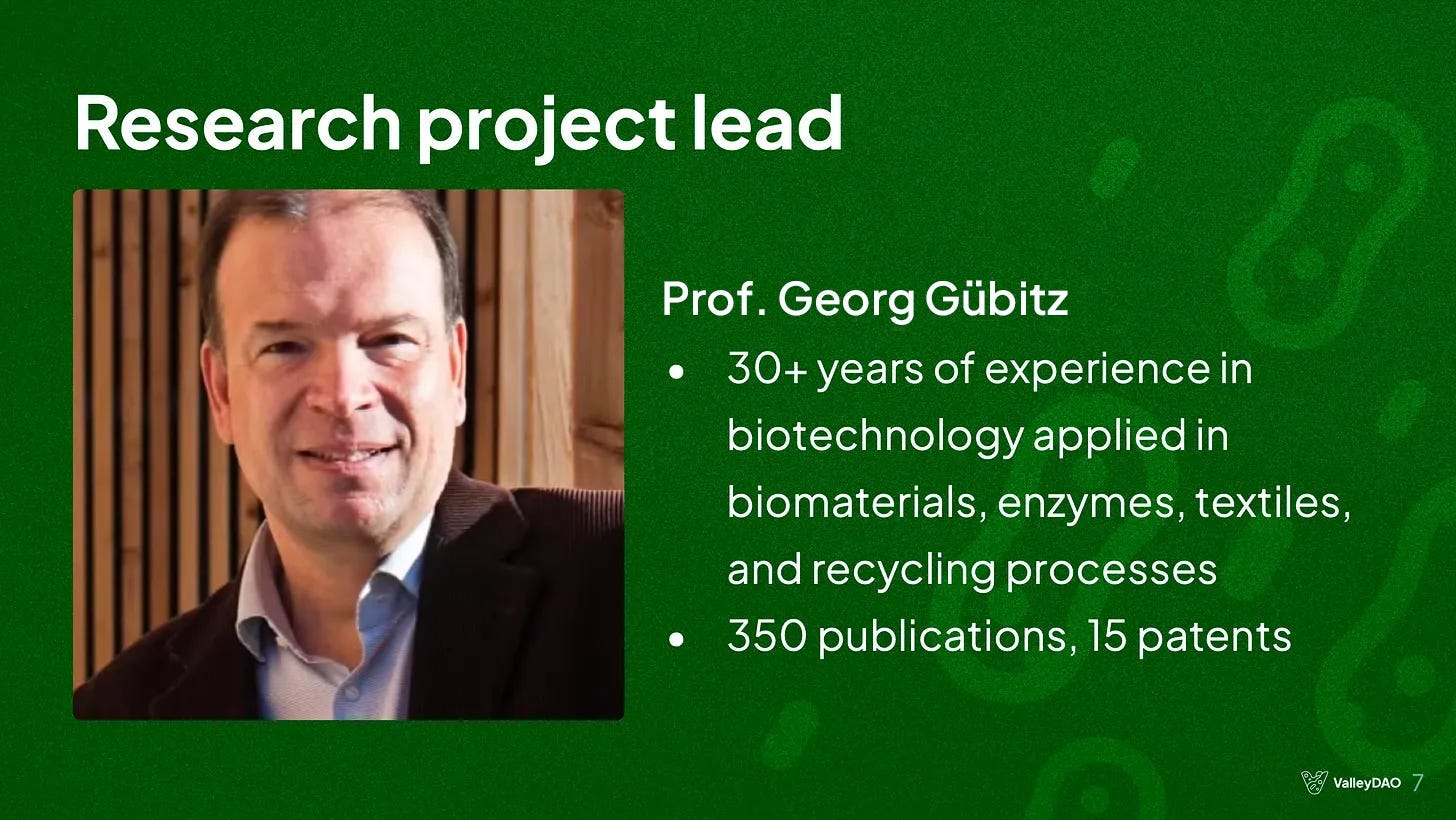
In the decades since then, several of Professor Gübitz’ publications have continued to focus on enzymatic treatment of various fibres, successfully improving flexibility, water resistance and the softness of many different fibres (including bamboo).
As the neglect from the fashion industry has made clear, to unlock hemp’s full potential we would first need to improve and upgrade many of its specific qualities.
Since the majority of this research revolved around enzymatic alteration of the lignin and cellulose compositions, he is confident that much of what he has learned over the past thirty years can now be transferred to hemp.
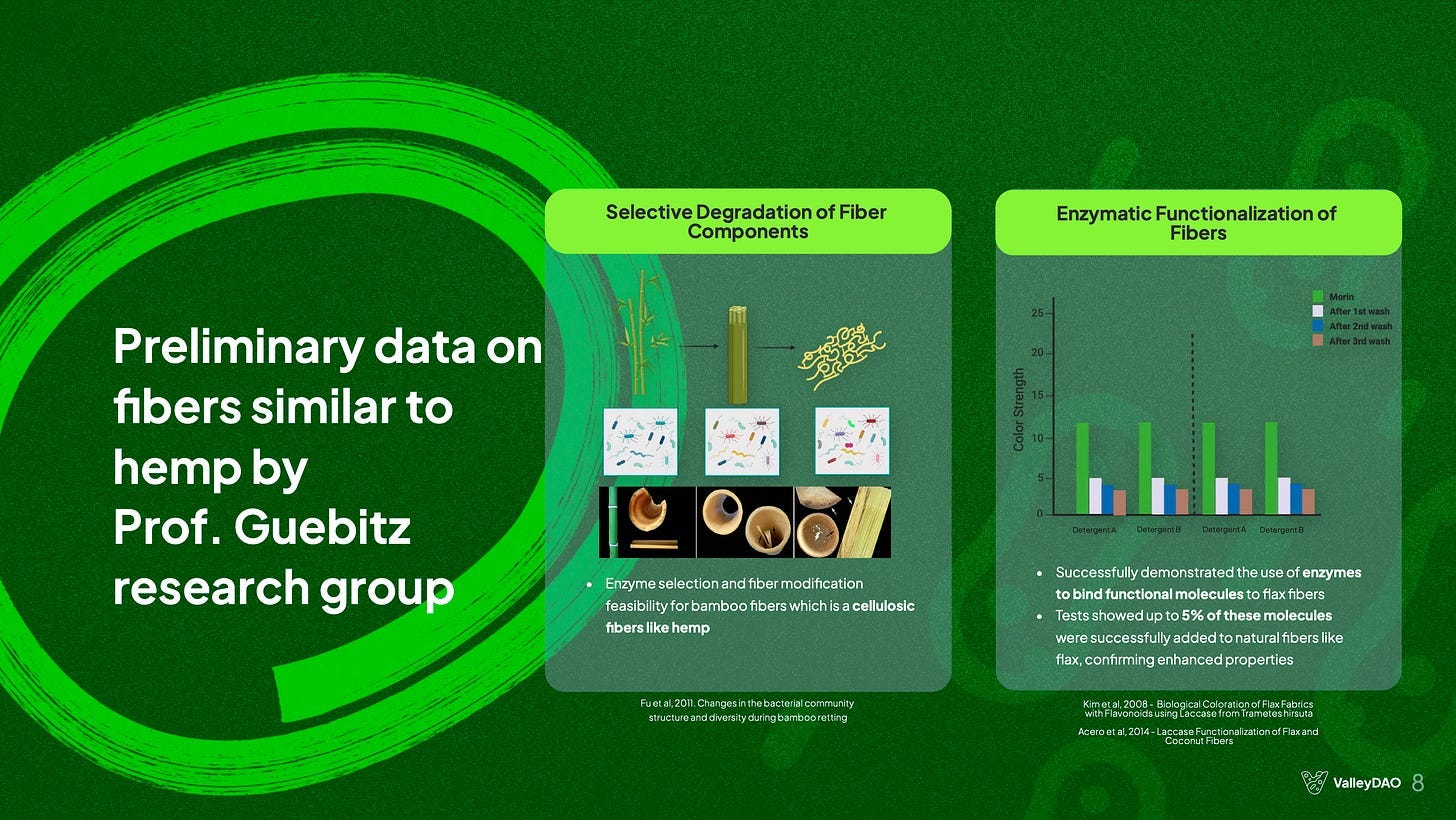
Under his supervision, the first few months of the research will be spent evaluating different enzymes for their ability to improve flexibility, strength, and water resistance.
Once the most effective enzymes have been selected, the next stage will be to set up a pipeline for monitoring and assessing the fibre modification process; as well as investigating which functional molecules could be attached to alter other properties, such as elasticity.
Throughout this process, the ValleyDAO community and HempKnit supporters will be directly involved: they will be given access to preliminary data, as well as involved in discussions such as on which enzymes and functional molecules will be used for treating the fibres.

ACIB has a strong commercial track record of spinouts having closed +$50m in funding, making it one of the leading hubs in Europe for biotechnology-based innovation, and the perfect home for the HempKnit project.
What sets this apart from previous ValleyDAO-backed projects is that this time, you can become a direct co-funder of the project alongside us. We're using a new platform called Catalyst to crowdfund this project, and we've committed €25,000 to date.
All project backers will receive:
- Access to private community of HempKnit funders
- Participation in decentralized research process with access to preliminary data and discussions with other funders together with the researcher
- Governance over funds and IP
- First access to HempKnit products
Project backers will also have a stake in the value created by the project - though unlike on other crowdfunding platforms such as Kickstarter or Experiment.com, by supporting HempKnit you become a part of a decentralized research and innovation process along with an expert community of other contributors.
Furthermore, once the project reaches the final amount, we will be selecting a supporter at random to receive up to $2,000 worth of our own token, $GROW. You can find more details on our Discord.
We also guarantee your money back if the project doesn’t achieve its funding goal within its designated funding period.
If this project and approach is peaking your curiosity and want to help us make this project a reality, head over to www.valleydao.bio/hempknit.
